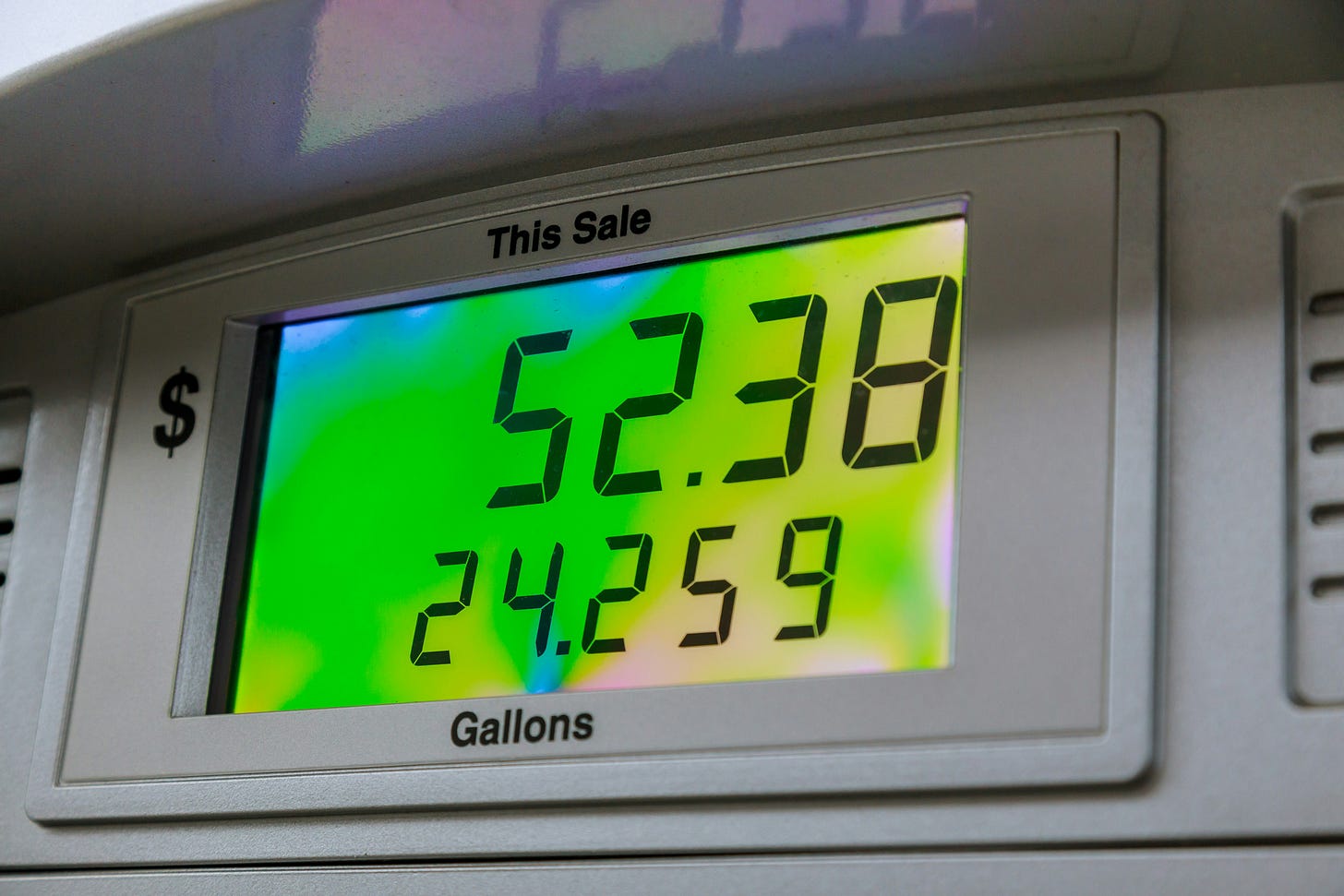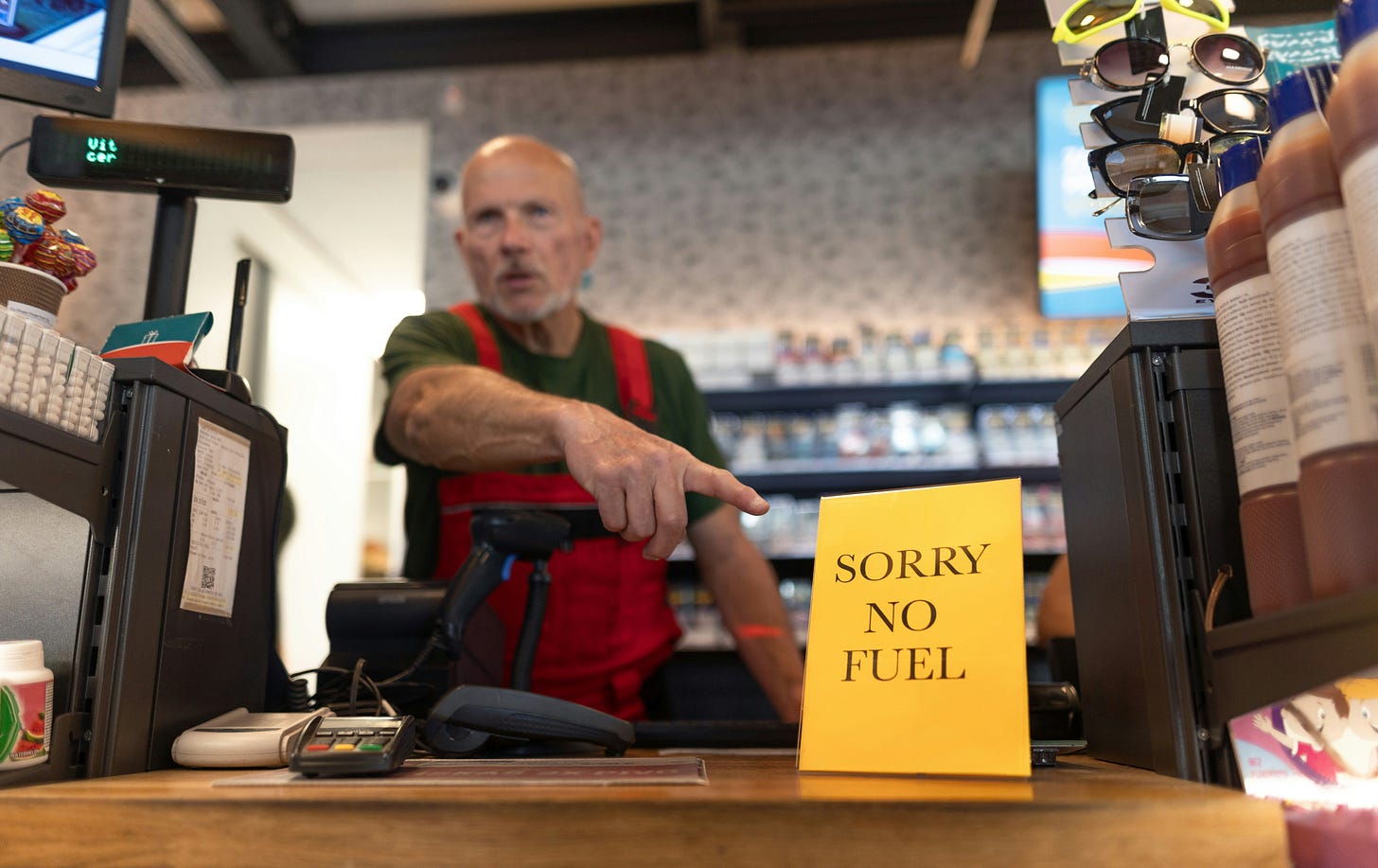(This is a substantially revised version of an article previously posted on Medium.)
I notice prices. Especially gasoline prices. I’ve been noticing them for 45 years.
But I didn’t realize that I noticed prices as much as I did until a trip to see my grandfather. That trip was the last time I saw him.
He was in a hospital in Thomaston, GA, about a two-hour drive away. I said something like, “Oh, gasoline is 10 cents higher here. I wonder why?” for about the fifth time.
My sister, who was driving, said, “What are you talking about?”
“Gasoline prices.”
“Where are you getting that from?”
“It’s right there on the sign.”
“What sign?”
“The gasoline signs! They’re everywhere.”
“How do you notice that?”
“They’re huge. How do you not see them?”
In fairness, it’s easier to notice billboards when you’re not driving.
Gasoline prices in urban areas, like Atlanta, are driven by location. In the Atlanta metro area, distance from Alpharetta also plays a role.
Stations at major intersections charge higher prices. So do those that are closest to the city of Atlanta. Believe me, I’ve noticed!
A major pipeline comes into Alpharetta from the gulf to fuel the Atlanta market. So the closer you are to the pipeline, the lower the price.
I noticed this once when I drove down State Route 140. The road goes from Canton, GA to I-85. Then the road continues until coming to an end just north of I-20. The further down the highway I got, the higher prices got.
When prices change all over the city and the country that also has meaning.
Because prices are signals.
If the price of gas has changed, the market is signaling that something has happened to demand and/or supply.
Prices can signal a shift in demand. In the early aughts, China began demanding more gasoline, shifting world demand up. So in 2008, during the Great Recession, the price of gas rose, even though demand was down in the US.
Prices, as signals, also tell the market that costs have gone up or down.
(Except when it comes to a good that is not in a competitive market, such as cat food or a pre-packaged food, like a frozen burrito. Then the price might stick, regardless of whether costs had changed.)
For gasoline the cost of oil is the main factor in the cost of gasoline. In the past, the Organization of Petroleum Exporting Countries (OPEC) had a lot of control over the production of the oil that gasoline comes from. If demand went up while the supply stayed the same, prices rose.
Or as we learned in the 1970s, if OPEC decides to withhold inventories of oil from the US, costs, then prices rise.
OPEC still have some say, but not what they had in the 1970s.
I learned about pricing from an expert, Professor Donald Ratajczak of Georgia State University. He could rattle off the prices of things I barely knew existed. He knew the rental price of an oil rig for a day in the North Sea for several successive years.
When the price of gas was skyrocketing in the 1970s and 1980s, renting a rig in the North Sea made sense.
I got another picture of gasoline prices after Hurricane Katrina hit in August 2005. The winds damaged the pipeline that comes into Alpharetta. For a number of reasons, Georgia ran out of gasoline.
Back then I knew the day to get gasoline. One chain raised its prices the night before. If my gas tank was half full or less, I’d fill up that night.
At another station.
Fortunately, I filled up the day before the lines hit in the Atlanta area. But I watched the price rise a dime every time I drove down Highway 124 in Snellville that day.
I kept forgetting a stop I needed to make and drove up and down three or four times.
I learned something else during the time when I was still commuting and shopping. In the south, in the summer, you needed to keep your tank at least a quarter full. And to make sure your tank door was closed. Evaporation was a problem then.
Now, your car’s gas tank has a better seal.
Still, who wants to run out of gas on the way to a hospital where you might see someone for the last time?
Thank you for reading,
Nikki
(My step-grandfather, Poppy aka Dr. Mabry Dodgen, passed away in 2007. He served in the marines in the Pacific Theater of Operations during WWII. Poppy got his veterinary degree from the University of Georgia after the war, working in private practice and then for the FDA. He survived three major heart attacks, only to succumb to the fourth. Of my six grandparents, Poppy was the only one I got to see before he died.)







Nikki The OPEC crisis in '73 crushed the economy, alternate days to get gas, red and green flags, and long lines. Lessons will be repeated until learned. Why did we ever cut domestic production of gas, and become beholding to others again? We need to be an exporter of energy not an importer!
I understand about the gasoline prices and it’s true. But what I really enjoyed most about this article since I lived in Atlanta all around the suburbs, I know Snellville I lived in Lilburn in Canton up near Kennesaw all around Atlanta worked at Saint Joseph’s hospital in DeKalb general and I’m looking at all the names of these cities or towns that are used to live in then it brings back a whole Lotta memories. Haven’t been back to Atlanta in over 20 years, but my sister lives in Lawrenceville, which is where I moved from recently when I moved back down to Florida about 30 years ago.
I understand articles about gas prices, but I thoroughly enjoyed going down memory lane as you were driving through these different towns. Thank you 😎